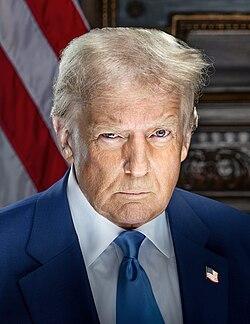Examining the Legal and Political Dimensions of Jeanine Pirro’s Potential Interim U.S. Attorney Appointment
Understanding the Legal Framework Governing Interim U.S. Attorney Appointments
The process of appointing an interim U.S. Attorney is governed by a nuanced set of federal laws that distribute appointment powers among the President, the Attorney General, and the judiciary. Central to this framework is 28 U.S.C. § 546, which authorizes the Attorney General to designate an interim U.S. Attorney for a maximum of 120 days. Should the vacancy remain unfilled after this period without a Senate-confirmed nominee, the district court gains the authority to appoint an interim U.S. Attorney until a permanent appointment is confirmed by the Senate. This multi-tiered system is designed to prevent any single branch from exerting unchecked control over critical prosecutorial positions.
Core components of this appointment authority include:
- Attorney General’s interim appointment: Limited to a 120-day term without Senate confirmation.
- Presidential nomination: Requires Senate approval to serve indefinitely.
- Judicial appointment: District courts can appoint interim U.S. Attorneys after the Attorney General’s term expires, pending Senate confirmation.
| Appointing Authority | Duration of Appointment | Senate Confirmation Required? |
|---|---|---|
| Attorney General | Up to 120 days | No |
| President | Indefinite (post-confirmation) | Yes |
| District Court | Until Senate confirmation | No |
Potential Consequences of Appointing Jeanine Pirro as Interim U.S. Attorney
The prospect of Jeanine Pirro assuming the role of interim U.S. Attorney carries significant implications for ongoing federal investigations. Known for her vocal support of former President Trump, Pirro’s appointment raises concerns about the impartiality of prosecutorial decisions, especially in cases linked to Trump and his associates. Legal analysts and watchdog groups caution that her leadership could result in:
- Scaling back the intensity of investigations into politically sensitive matters
- Delays or possible dismissal of critical indictments
- Undermining prosecutorial credibility through partisan rhetoric
Reviewing Pirro’s public record and prior conduct suggests a potential shift toward consolidating control over investigative processes, which may affect the progress and outcomes of key cases. The table below outlines possible impacts on major federal probes under her interim tenure:
| Investigation | Anticipated Action | Projected Outcome |
|---|---|---|
| Campaign Finance Violations | Narrow investigation scope | Slower case development, fewer charges |
| Corporate Fraud | Reassess evidentiary standards | Weakened prosecutorial cases |
| Obstruction Investigations | Restrict inter-agency collaboration | Extended investigation timelines |
Political Responses and the Broader Impact of a Contentious Appointment
The announcement of Jeanine Pirro’s potential interim appointment has ignited a wave of reactions from political figures and legal authorities alike. Many Democrats have expressed alarm, viewing the move as a threat to the Justice Department’s autonomy and a politically motivated attempt to influence ongoing probes. Meanwhile, some Republicans have urged prudence, emphasizing the necessity of preserving public confidence in the impartiality of federal law enforcement.
The debate reflects the polarized nature of contemporary American politics, with stakeholders voicing divergent perspectives:
- Democratic leaders: Advocate for enhanced oversight and legislative measures to curtail partisan interim appointments.
- Centrist Republicans: Call for transparency and adherence to established legal precedents.
- Legal scholars: Warn against the dangers of politicizing prosecutorial roles and the long-term erosion of judicial independence.
| Group | Primary Concern | Possible Responses |
|---|---|---|
| Democrats | Compromise of DOJ independence | Push for legislative reforms |
| Moderate Republicans | Risk of partisan overreach | Demand for procedural clarity |
| Legal Experts | Precedent disruption and politicization | Public commentary and legal briefs |
Strategies to Preserve the Independence and Credibility of the Department of Justice
Maintaining the Department of Justice’s impartiality requires robust mechanisms to prevent politically driven appointments from undermining prosecutorial integrity. Transparent, legally grounded procedures for interim U.S. Attorney selections are essential to uphold public confidence and ensure justice is administered without bias. Recommended actions include:
- Establishing explicit statutory limits on interim appointments to restrict unilateral executive influence.
- Strengthening Congressional oversight to expedite review and confirmation of temporary appointees.
- Implementing comprehensive ethics training for DOJ personnel to reinforce commitment to impartiality.
Additionally, creating an independent review panel tasked with vetting interim candidates can further shield the appointment process from political interference. This body would evaluate nominees based on professional qualifications and ethical standards, operating autonomously from partisan pressures.
| Recommendation | Objective | Anticipated Benefit |
|---|---|---|
| Statutory Appointment Restrictions | Limit executive overreach | Fair and transparent appointment process |
| Congressional Review | Ensure accountability | Qualified and balanced interim leadership |
| Ethics Education | Promote impartial decision-making | Reduced political bias in prosecutions |
| Independent Vetting Committee | Evaluate candidate suitability | Preservation of DOJ autonomy and integrity |
Conclusion: Navigating the Complexities of Executive Power and Judicial Independence
While former President Trump holds considerable influence over federal appointments, the legal framework surrounding interim U.S. Attorney designations imposes significant constraints on unilateral actions. The debate over Jeanine Pirro’s potential appointment underscores the ongoing tension between executive authority and institutional safeguards designed to protect the impartiality of the justice system. As this situation unfolds, it serves as a critical case study in balancing political considerations with the foundational principles of judicial independence and rule of law.







